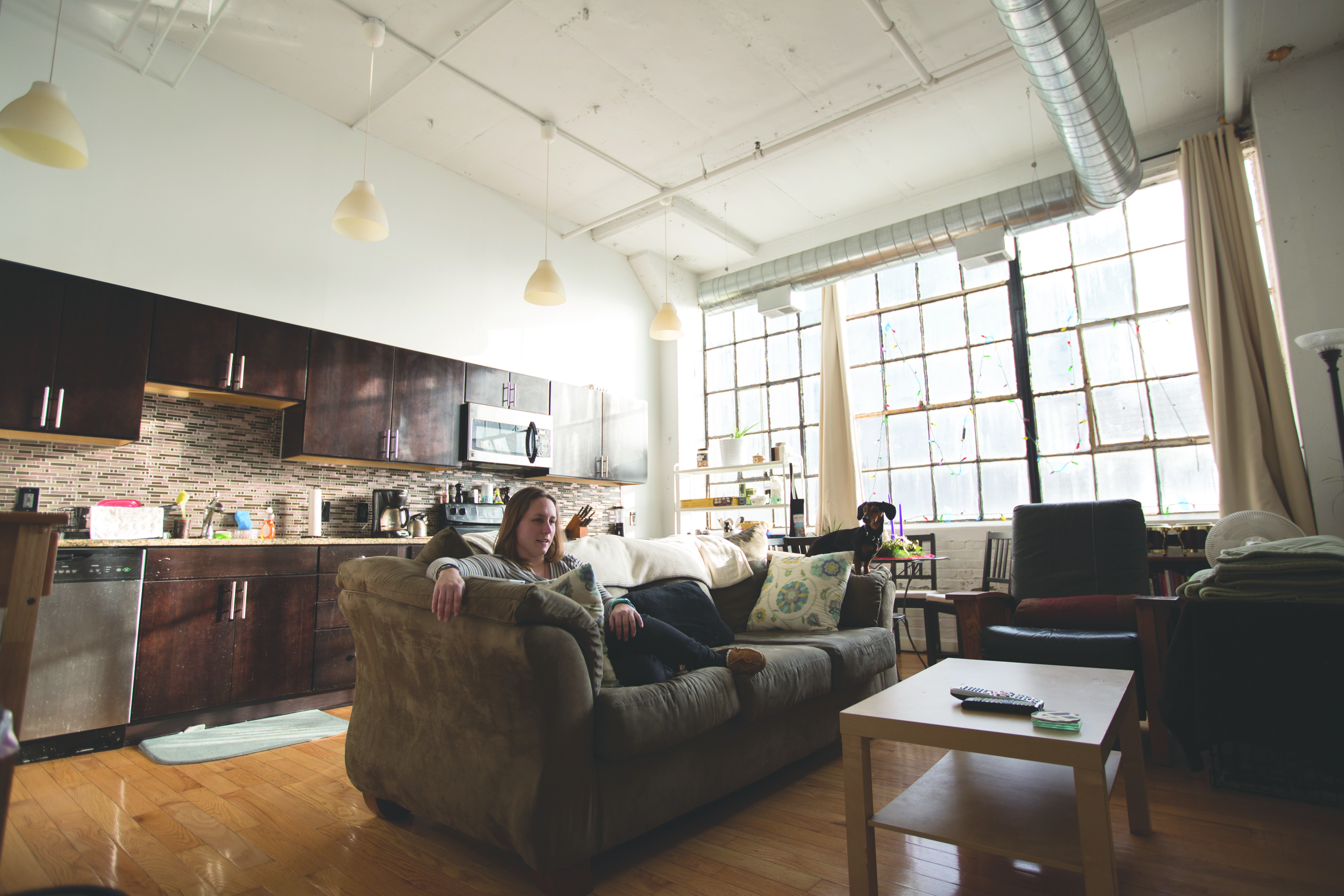
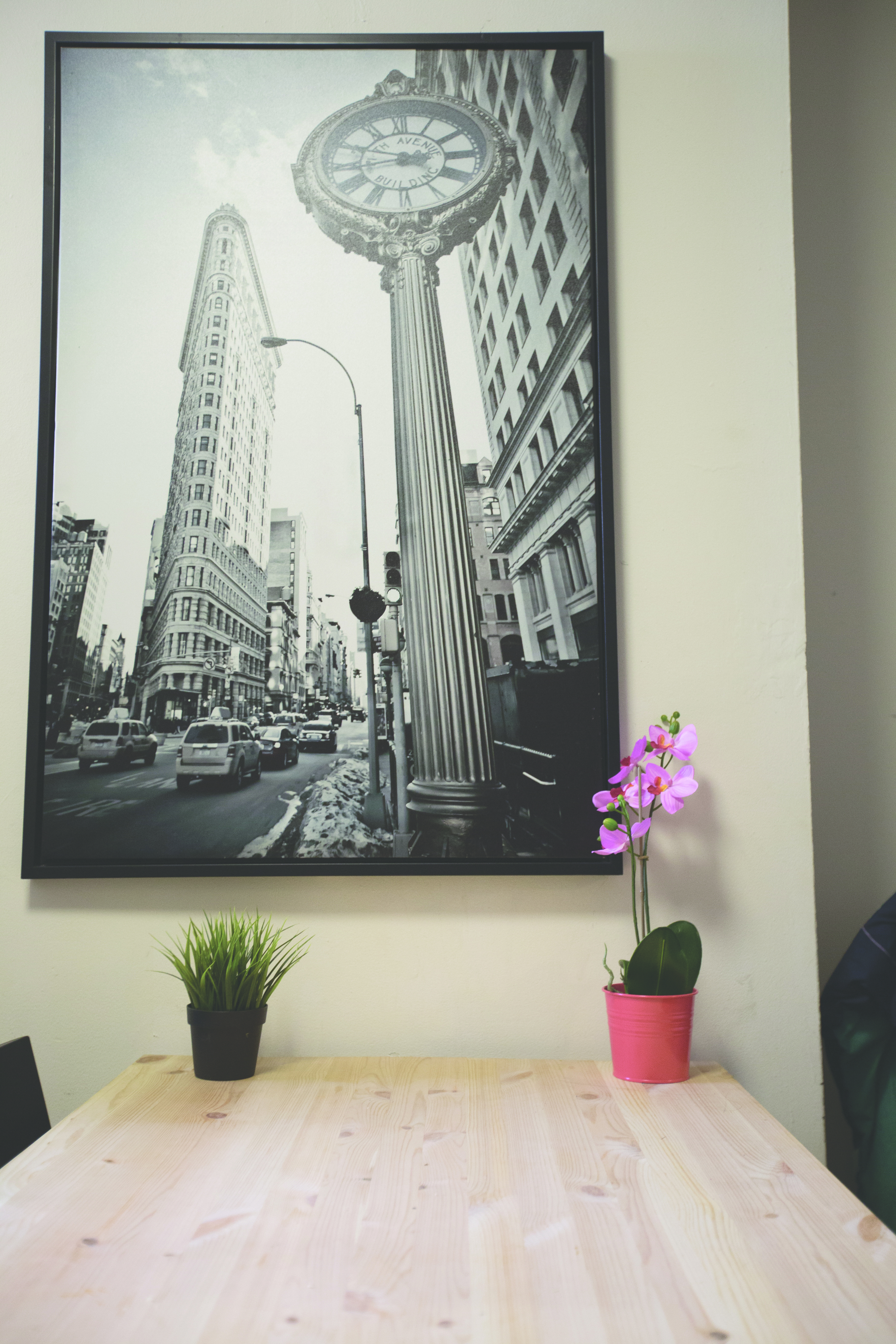
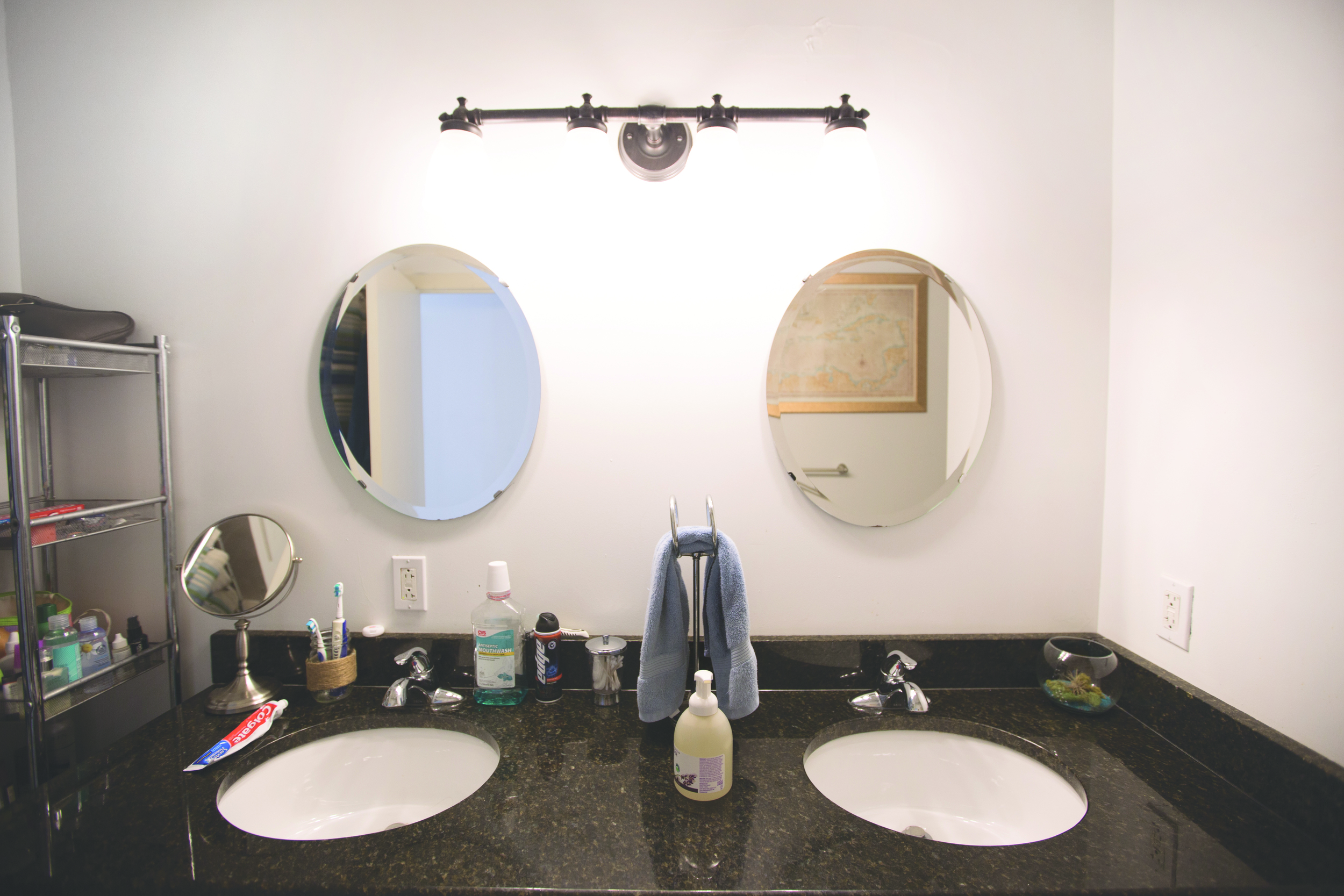
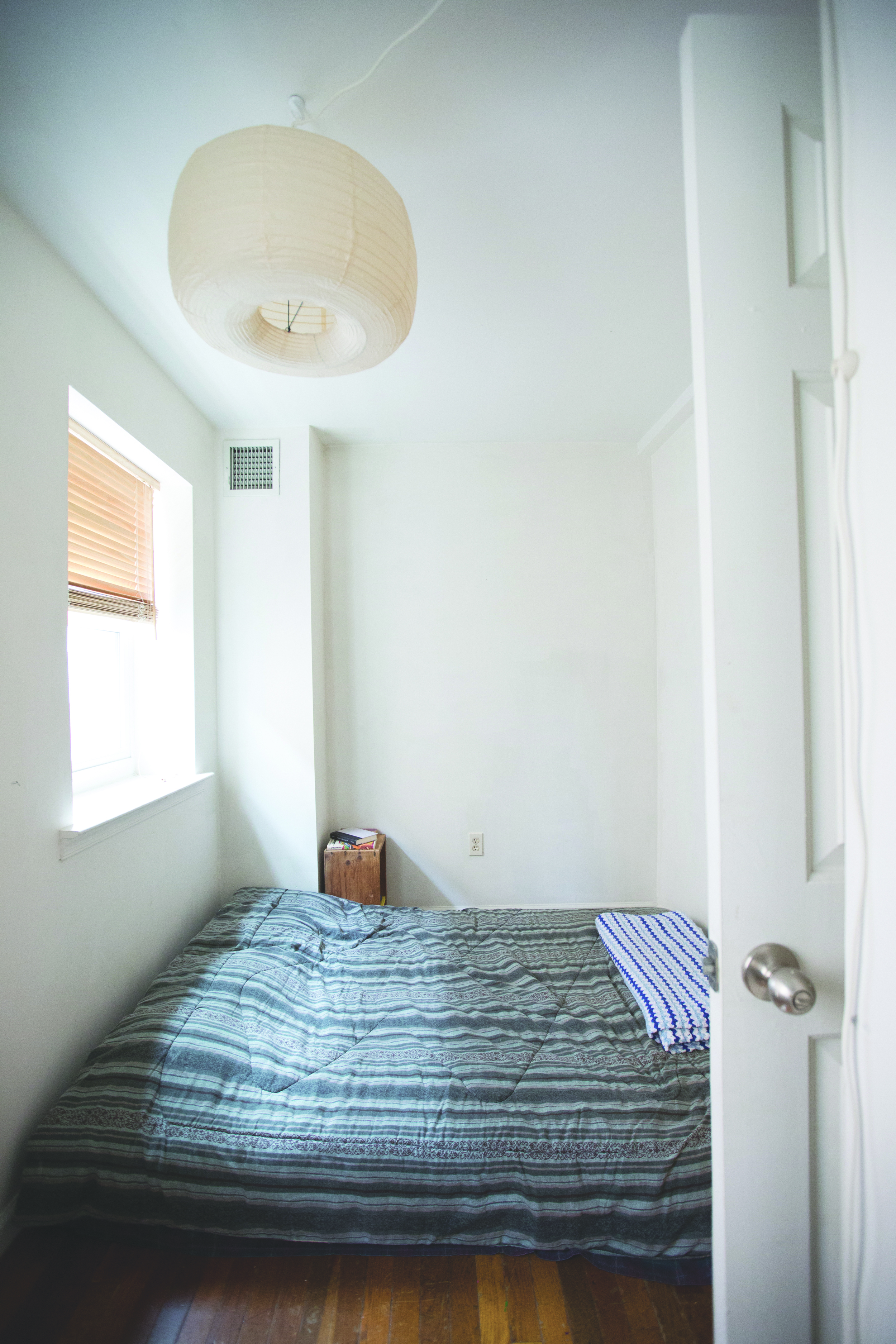
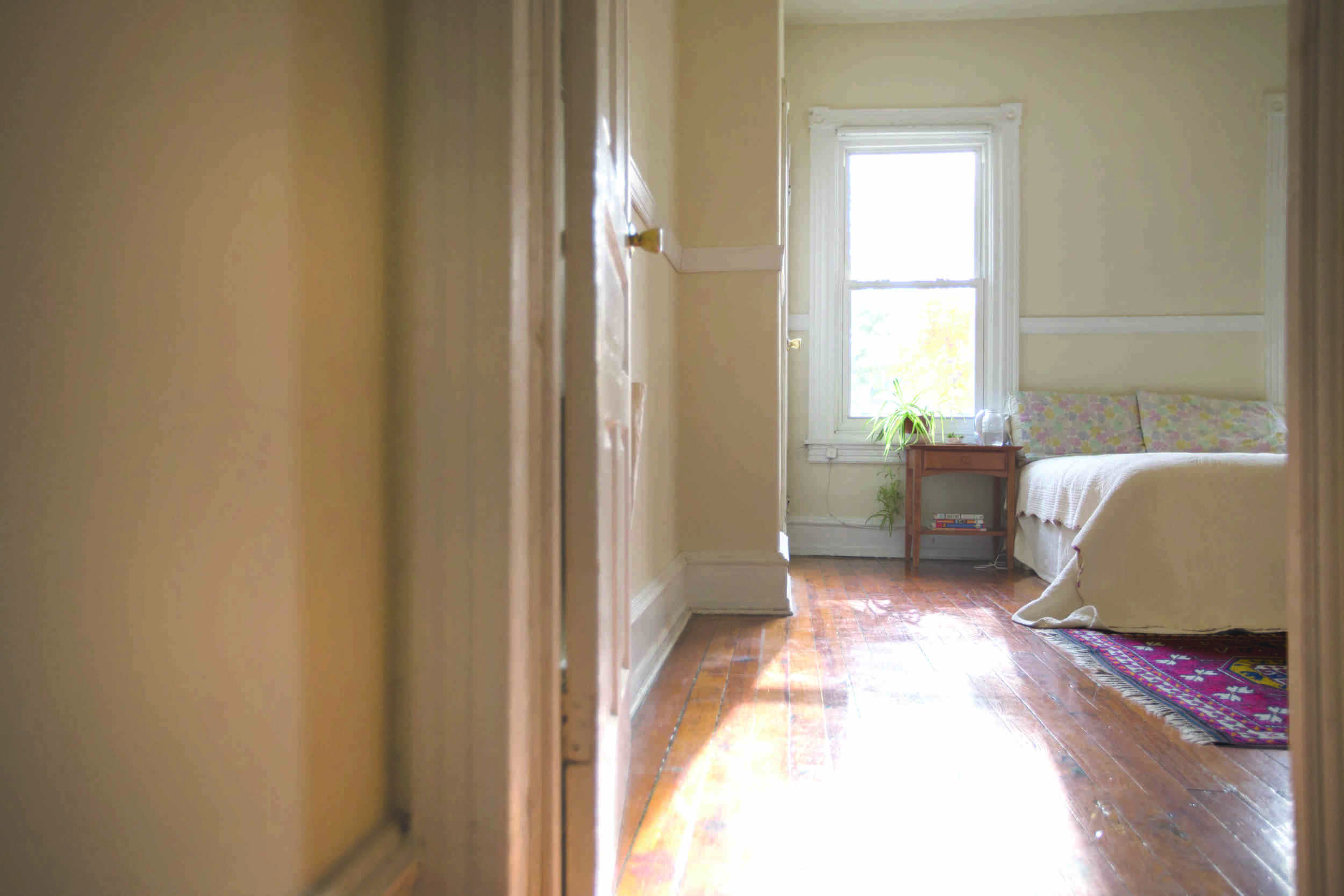
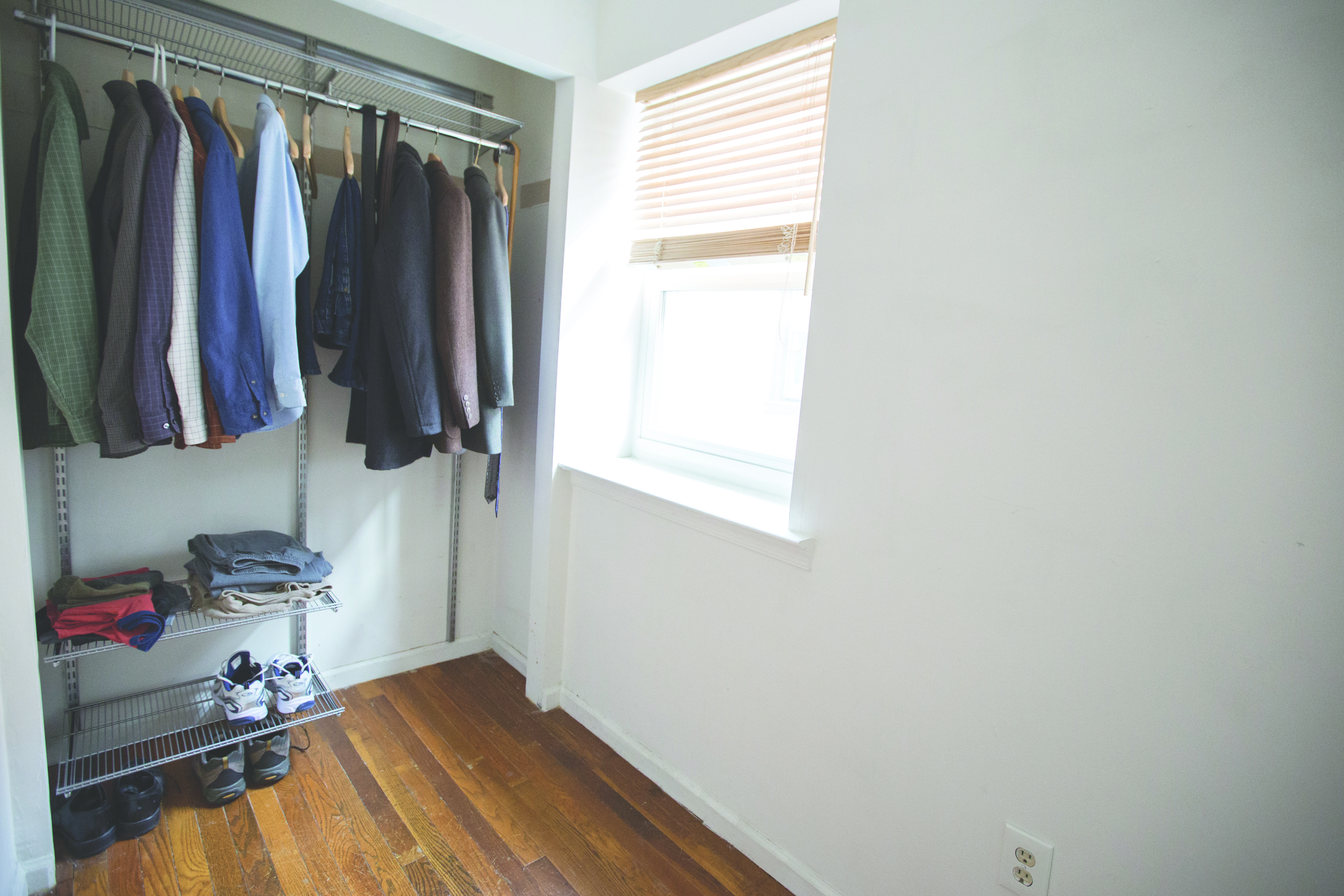
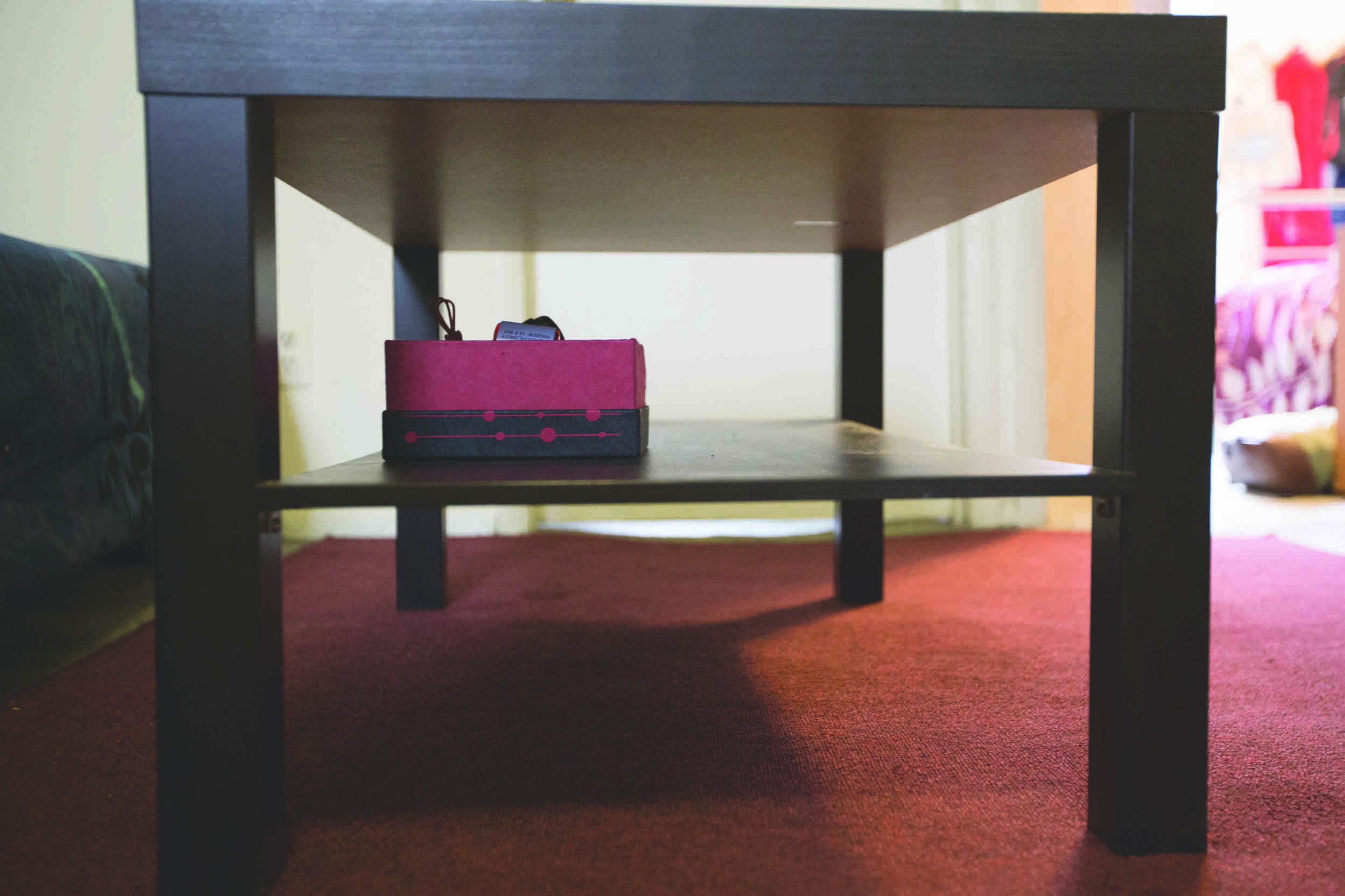
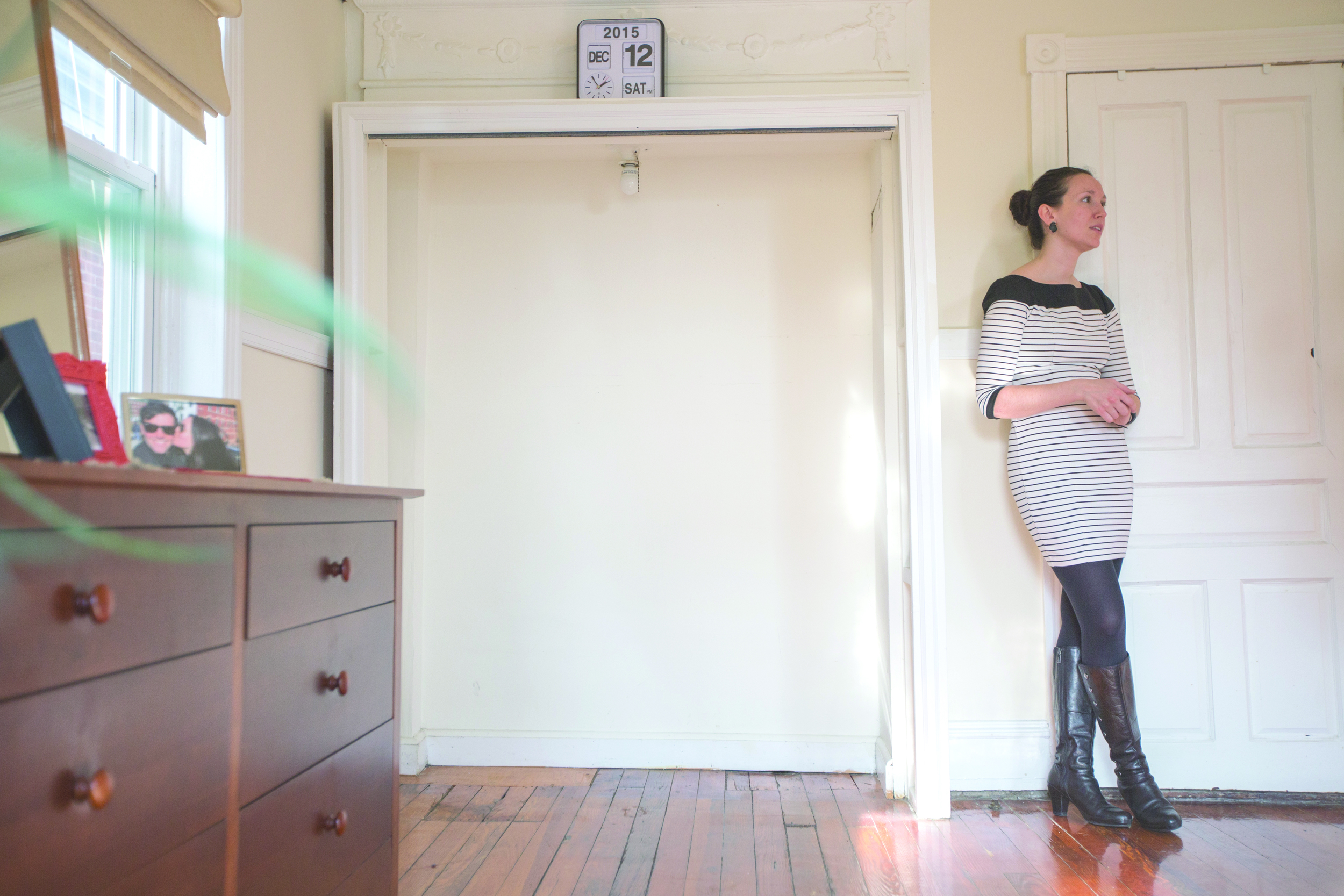
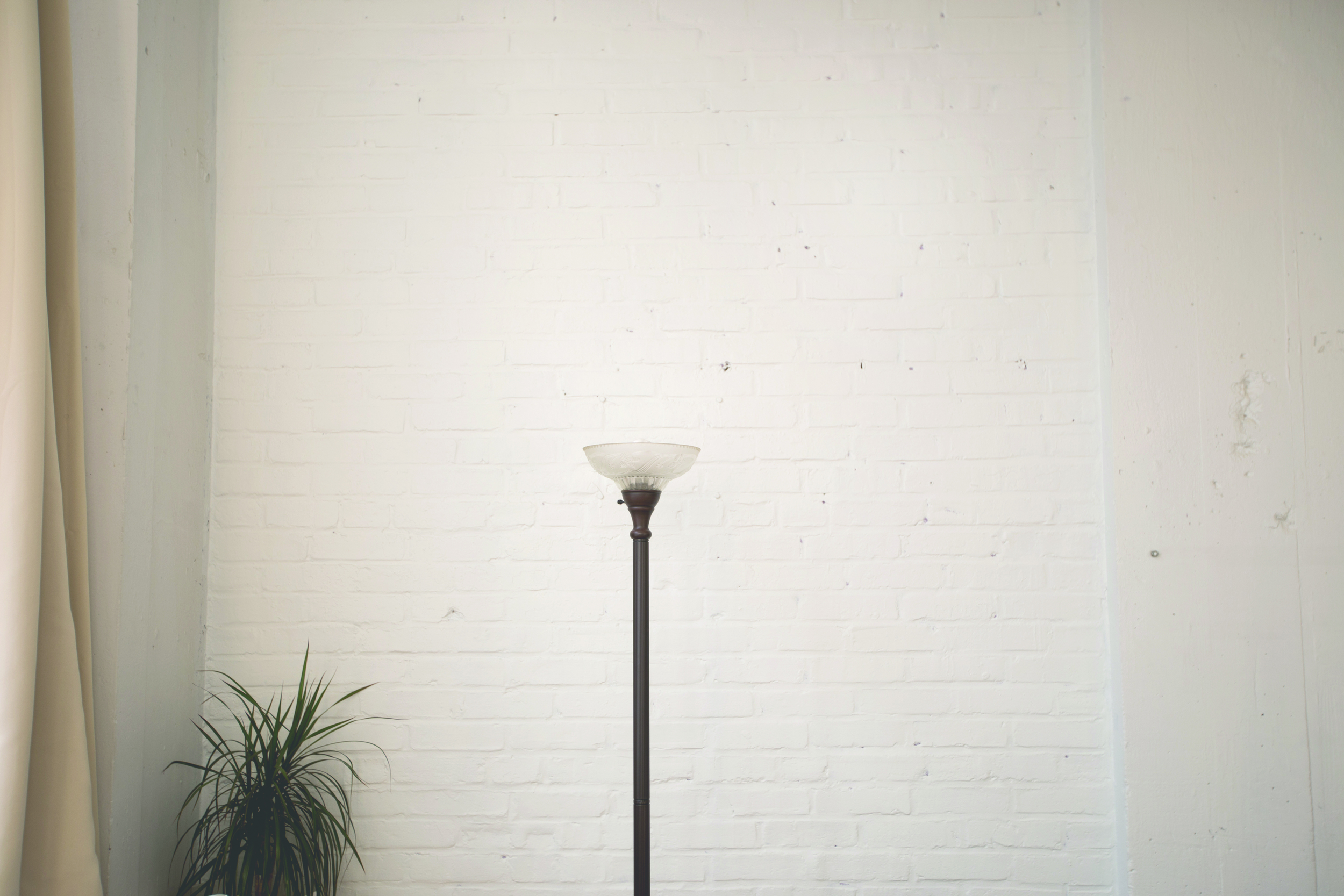
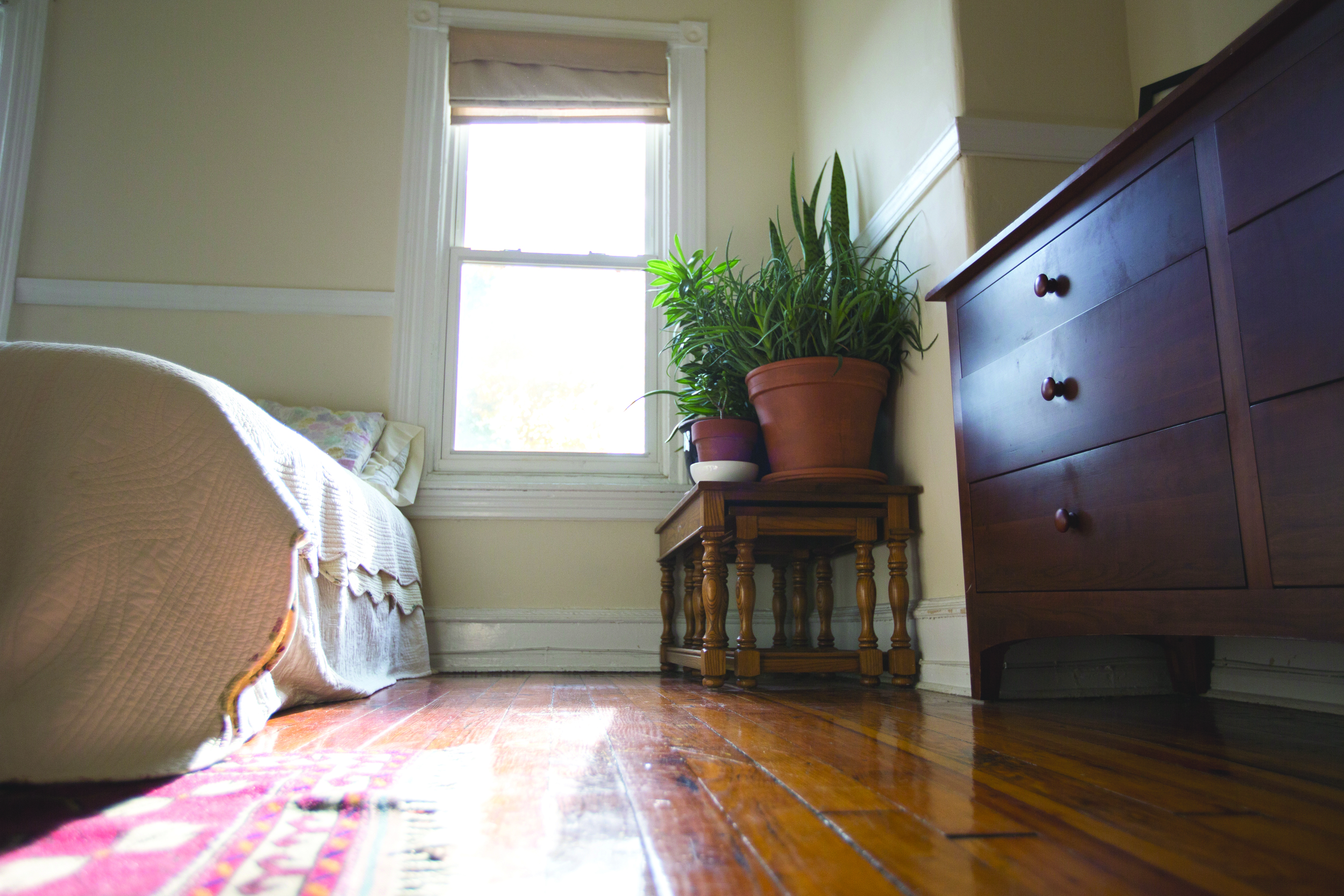
Own Your Life
by Alex Mulcahy
Aaron Bitler stands in front of his sparsely populated clothes closet. If this rack were in a retail store, you’d think it was going out of business. His winter wardrobe consists of five work shirts, three weekend shirts, two pairs of work jeans, a pair of weekend jeans, a winter coat, a fall coat, and—for special occasions—a sport coat and slacks. Three pairs of shoes are on a rack on the floor, and stacked one level above the shoes are his “house” and workout clothes. He owns three short-sleeve shirts, which are in the basement, and he keeps his socks and undergarments in a dresser drawer in his living room.
Bitler, 40, a chemistry lab supervisor at the Philadelphia Water Department, recently got rid of his bed, so his mattress lies on the floor. There’s a book on the small table next to the bed, a copy of A Guide to the Good Life: The Ancient Art of Stoic Joy, a 2008 title by philosophy professor William B. Irvine.
As far as “stuff” in that room goes, that’s about it. Bitler is among a growing number of people striving for a minimalist lifestyle, examining their possessions and systematically paring them down, sometimes to a jarringly utilitarian few.
When asked how he feels in this room, he says, “This is the best room in the place!”
His 7-year-old son, Erich, begs to differ. Across the hall from his father’s barebones sanctuary is his room, a tsunami of two-foot-tall Tyrannosaurus rexes, Hess trucks with sirens and horns, Legos, papers and puzzles. “You can hardly walk from one side to the other,” he brags. It’s not the only untamed room in the house. The third floor contains Bitler’s comic book collection, and a boxed-up weight bench, which will be assembled when the room is eventually emptied.
Bitler’s minimalism is a work in progress, and that’s why for the past year he has sought inspiration and support by attending meet-ups of minimalists around the city.
If it seems like ridding yourself of unwanted items shouldn’t require a support group, consider these facts: The average American home has 300,000 items; U.S. children—3.7 percent of the world’s population of kids—have 47 percent of all manufactured toys and children’s books.
Not surprisingly, the containers for our possessions have grown as well. The average size of the American home has more than doubled since the 1950s, and despite our ever-growing square footage, one in 10 Americans rents a storage unit.
Bitler has found it a relief to discover compatriots who want to live “a meaningful life, which includes owning only that which is important to you, but extends to mindful decisions about food, technology and entertainment. It’s a safe place.”
Unease with a materialistic life
The group, a local chapter inspired by the blog The Minimalists, was founded by Ayse Unver, 27, an urban planning and policy manager at Pennsylvania Horticultural Society.
Unver grew up in Summit, New Jersey, an only child. Her home was—by her account—modest, with enough stuff in it to make it feel “lived in.” She recalls some tension among her, her mother and her father. He preferred a more organized environment, and she and her mother were frequent clothes shoppers.
“It was a suburban existence, so [we were] driving everywhere and shopping,” she says. “We had a mall within a mile of our house, and that was the pastime: You would go hang out at the mall… The tale of suburbia.”
While Unver always felt a little out of step with society at large—she was voted “most non-conformist” in high school—it wasn’t until after she had already landed her first job and moved from a studio apartment to a three-room apartment that she truly began acknowledging the uneasiness she felt with the life she was leading.
“I was living and decorating my space in a way that I thought society expected me to. I need a coffee table. Now I need a dining room table. Now I need a tablecloth. I don’t have enough counter space because I have so many kitchen tools. Let me get a butcher’s block island from IKEA.”
All of this acquisition, coupled with rent, meant that Unver wasn’t saving any money. It was concern for her financial future that pushed her to downsize her three rooms to one. But what to do with all the stuff she had accumulated?
“When I realized how much stuff I had to move, that then drove me to the internet to ‘how to declutter your life.’” That led her to the The Minimalists blog, and she was soon poring over every word they said.
“In a way, they’re a removed set of mentors,” Unver says. “They set you on a path, they give you the knowledge to forge your own path.”
The Minimalists
The Minimalists blog was launched in 2010 by two childhood friends, Joshua Millburn and Ryan Nicodemus, who, in the past seven years, have radically changed their lives. In the first half of their 20s, prior to the site’s launching, they were living what many consider the American dream. They each had jobs that paid them six figures and were able to buy anything they wanted. But both were working 70- to 80-hour weeks, and despite the healthy paychecks, they were sliding into debt.
When, in the same month, Millburn’s marriage ended and his mother died, he found himself facing some big existential questions, and he began to look at the role stuff played in his life. His conclusion was that he was freer without it.
Months later, Nicodemus noticed a dramatic and improved change in Millburn and asked him, “Why the hell are you so happy?” When Nicodemus learned of Millburn’s possession shedding, he decided to follow suit. Together, they organized a “packing party,” where all of Nicodemus’ things were packed as if he were moving, and unpacked only as they were needed over a three-week period. After the time was up, Nicodemus found that 80 percent of his possessions remained in boxes.
He sorted the remaining packed possessions into three categories: donate, sell and discard. The process hit a snag when he encountered a shoebox box full of sentimental items, including a photo of him and his girlfriend from a homecoming dance and emotionally packed letters from his mom written during a turbulent time. He found a solution.
“I’m going through the stuff and I’m like, ‘What are you going to do with it, dude? Are you going to hold on to it?’ and I tell myself, ‘Well, I can’t. This is something I’ve committed to, and I refuse to be trapped by things. I’m not going to do this.’ So, I didn’t throw away the shoebox. I took one letter out of the box and took a picture of it, so technically I still have it. Saved it, put it on my phone. I threw the letter out and it’s not like I shredded it or burned it or anything. I just put it in the trash can and thought to myself, ‘Okay, if I get up in the morning, I can easily get it out of the trash can if it weighs on me that much.’”
Much to his surprise, the letter slipped from his mind and was not rescued. Every once in a while, he’ll scan through his photos, but in the five years since he scanned it, he hasn’t read the letter once. “They’re just sitting in my folder.”
Stories like these that have earned the pair devoted readers and heavy web traffic—they claim four million people have visited their website. They’ve received media attention a rock star would envy, including features on ABC, CBS, NBC, BBC, NPR, TODAY, TIME, Forbes, The Atlantic, The New York Times, The Wall Street Journal, USA Today and National Post. “Minimalism: A Documentary About the Important Things” will be released in 2016.
They’ve written several books, and while touring to promote one of
them, Everything That Remains: A Memoir by the Minimalists, that the idea to create local support groups was hatched. Nicodemus says, “[At] every single stop, people [would say] The people here are awesome. How do we hang out with [them]?’”
Letting go of anxiety and emotional clutter
On an unseasonably warm November night at the Cosi on 12th and Walnut streets, a dozen or so people sit around a table, participating in the Philadelphia chapter of The Minimalists group. How, Grid asks, have your family and friends reacted to your decision to pursue a minimalist lifestyle?
Bitler responds, “Honestly, my friends think I may be going crazy, and they have expressed this to me. They fear I will never find a mate without a bed. They fear I will regret getting rid of so many things, books, comics, CDs, once they are gone.” Being a father and striving to be a good role model pushes him past the discouraging comments. “It’s my hope that I can help [my son] see what is truly important in life, despite the reminders he gets from TV, Christmas and other children.”
Yaeisha Slack, 30, a chemist who works with Bitler at the Philadelphia Water Department, agrees that the holidays can be tricky to navigate.
“Last year, last holiday season, when I was thinking about minimalism, wanting to get rid of things, I told my mom I didn’t want anything,” says Slack. “She got me stuff and I was like, ‘I don’t want this,’ and she lost [it]. ‘I picked this out for you! How can you say you don’t like this thing that I gave you!’ And I was like, ‘I warned you.’”
Krista Pfleger, 28, a community outreach coordinator at the Please Touch Museum, understands the conflict. “I think [people] get a little confused around the holidays and birthdays. Like, they still don’t believe me when I say that I don’t want anything. But if they insist on getting me a physical gift, I have no problem telling them if there is a specific item I need, even if it’s really basic, like a new pair of jeans or a haircut. I’m fine with the lack of surprise.”
While some challenges are external, the biggest seem to be internal. Just as Nicodemus had to face his shoebox of mementos, the aspiring declutterer will encounter emotional pitfalls. “For me, the most difficult items to get rid of were—and still are—items linked to memories, both good and bad,” says Bitler. “I have no compunction about giving away boxes of comics or books or toasters or other appliances without reclaiming any money for them. But a scrap of paper or business card from 20 years ago can give me pause and prevent me from action.”
Aspirational items can also be difficult to let go of. It can be painful to divest yourself of the unplayed guitar in the corner of the room, or the expensive paints and paintbrushes in the closet. Separating yourself from those items is akin to admitting that good intentions are not coming to fruition.
“It was kind of hard to let go of my sewing machine,” says Carly Statz, 35, an instructional designer at Thomas Edison State College. “My mom and stepdad bought it for me, and I had been very excited about learning to sew. After working on a few projects, though, I realized that I liked the idea of sewing, but I don’t actually like doing it. That was a little hard to admit to myself.”
While overcoming these obstacles requires a lot of mental fortitude, everyone fervently agrees that it is worth it. When asked if anyone ever regretted getting rid of something, everyone at the table shakes their head no. And the rewards seem to be many.
“[In] general, I feel less stress and anxiety,” says Statz. “My home feels comfortable and peaceful instead of messy and chaotic. It takes hardly any time to clean my place. I spend less money on things, which allows me to save more, or spend it on experiences like traveling or dance classes. And minimalism isn’t just about having fewer possessions. For me, it’s also about limiting obligations, activities and relationships to the ones that are really meaningful to me. That frees up more time and also cuts down on mental and emotional clutter.”
“I think I am more present in my relationships,” says Pfleger, “because I really cherish the time I get to spend with loved ones. It has made a huge difference on my finances. I used to consistently spend more than I earned, which was really easy to do. Now, I have some wiggle room to contribute more to savings or paying off debt. I also feel less pressure to try and ‘keep up with the Joneses’ because I don’t want what the Joneses have.”



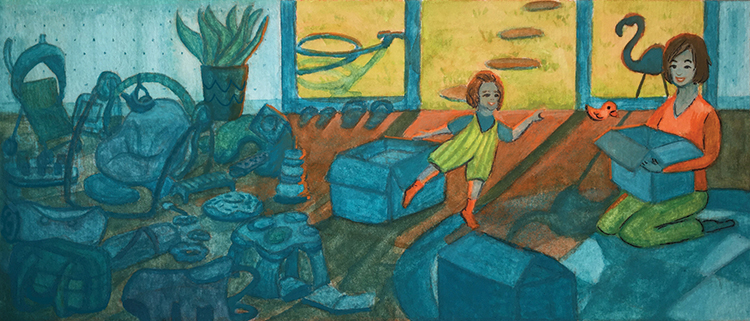
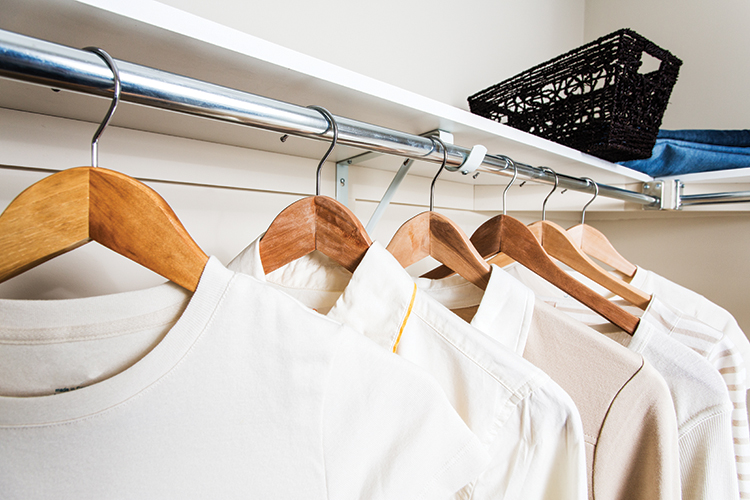







How does one balance minimal and green living with modern hygiene? In other words, one might conserve water by not showering as often or prefer minimal ingredients in deodorants. But these things are not accepted by society in a different way: they impose smells on others. To say it another way, it is intrusive to others in a manner other aspects of minimalism are not.